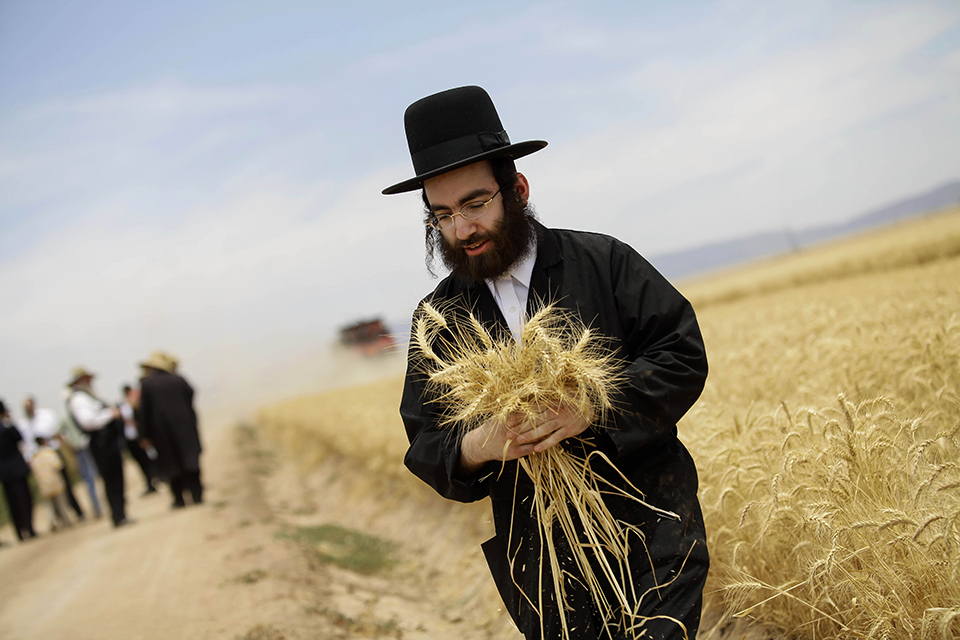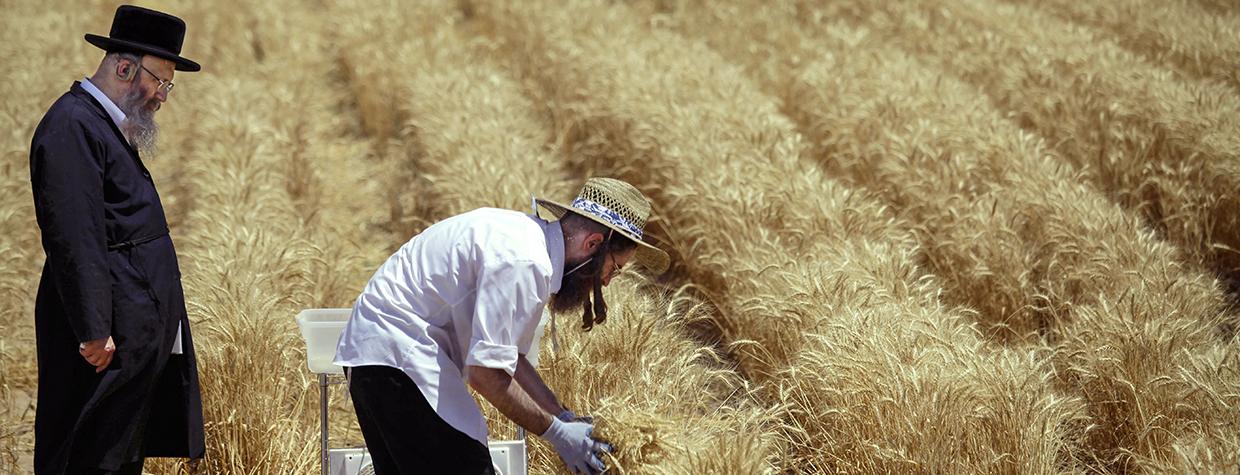Rabbi Isaac Lowi is anxious.
First, he wants to know when Tim Dunn is going to visit him in New York. “You’re welcome here anytime,” Lowi says. “You come. Welcome. Like family.”
Second, he wants to know when he should book his flight to Arizona.
Dunn laughs and tells the rabbi he’ll know more in a couple of weeks, then reassures the man on the other end of the iPhone conversation that his wheat is, indeed, doing just fine.
This month, Lowi and a dozen or more other rabbis will make the roughly 2,500-mile journey from Brooklyn, New York, to Yuma to bless the 60-acre crop of white wheat that Dunn has grown for them. Kosher certified, unadulterated and fresh from the earth, the wheat will then travel by rail back to New York, where it will be baked into Passover matzo and distributed among the rabbis’ synagogues. And with a yield of approximately 6,000 pounds per acre, that’s a lot of matzo.
The relationship began when Lowi and his rabbinical kosher research consultant, Yitzchok Chaim, realized that wheat grown in New York is difficult to certify as kosher for Passover because of pre-harvest sprouting, which is caused by wet weather. During his research, Chaim discovered that in the mid-1960s, the grand rabbi of the Satmar sect of Hasids worked with an Arizona farmer to grow wheat for matzo.
“The project did not last longer [than a few years] because Arizona grows predominantly hard-red and durum wheat, which is high in gluten and results in a stiff, rubber-like dough,” Lowi says.

Then, in 2007, Lowi and Chaim found Dunn, who was willing to grow an entirely different, more suitable variety of wheat.
“We specifically contacted Tim from the roster of available farmers because his father, Floyd Dunn, is one of the senior farmers in Arizona,” Lowi says. “Floyd vaguely remembers the presence of rabbis in 1965.”
Ever since, Dunn has worked hard to perfect a system of growing, harvesting, processing and storing wheat that works for the rabbis and for him.
But it hasn’t been easy. In order to be certified kosher, mature wheat must never touch the ground. It can’t be rained on or flown over, and it shouldn’t be exposed to weeds.
“We plant some varieties of wheat much earlier, but not this one,” Dunn says. “We plant in early January to prevent lodging — the toppling-over of the wheat — which can cause it to touch the ground. Usually, the taller the wheat, the greater the yield and the less cost to the buyer. But those rules don’t apply here.”
But other rules do apply. During the harvest, workers can’t carry water bottles into the field. Dunn’s men clean the combine meticulously; then, each rabbi does a cleaning of his own. The rabbis are given special access to the farm equipment during the harvest, allowing them to bless the wheat and the harvest and ensure the purity of the crop.
After the harvest, Dunn processes the wheat, stores it in his warehouse — which also is given a once-over by the rabbis — and prepares it for shipment.
“We’re enormously thankful that the planting in Arizona has proved successful,” Lowi says. “The time, effort and expertise that Tim gives to us as a farmer result in bountiful crops. … The harvests are outstanding in every way.”

